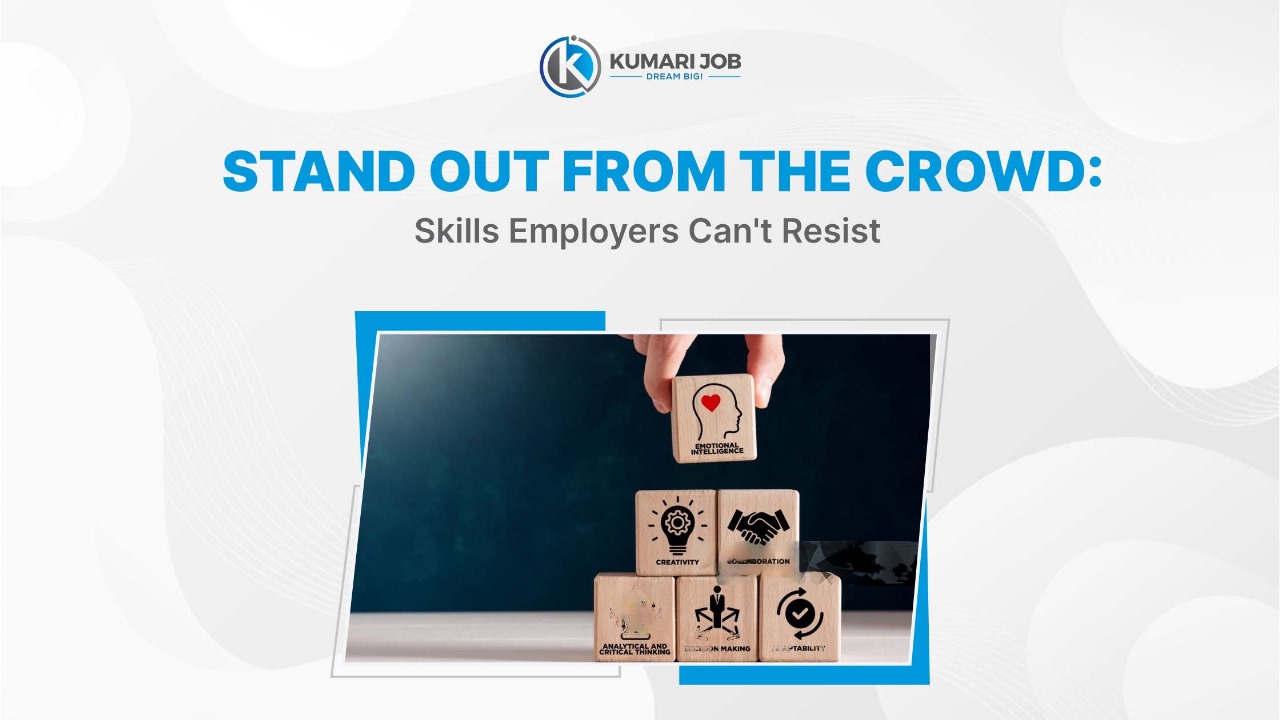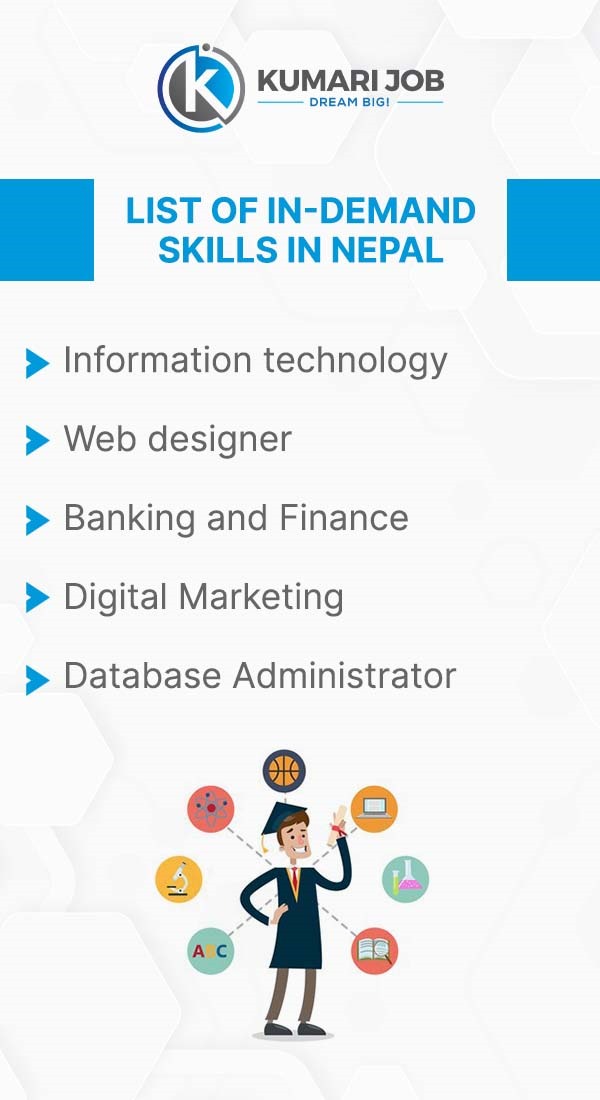
What is a skill?
A skill is the learned ability to act with determined results and good execution, often within a given amount of time, energy, or both. Skills can often be divided into domain-general and domain-specific skills.
Wikipedia says: A skill is the ability to act with determined results, often within a given amount of time, energy, or both. In other words, skill is the ability to use time, energy, or both to accomplish a task within a given time frame.
The Merriam-Webster Dictionary defines skill as the ability to use one’s knowledge effectively and readily in execution or performance. In other words, skill is the ability to use knowledge effectively and perform efficiently.
In this blog
What are hard skills?
Hard skills, also known as technical skills, are technical knowledge or training that you have gained through any life experience, including in your career or education. For example:
- If you’ve worked in food service or retail, you may know how to use a point-of-sale system.
- If you've taken an accounting class, you may know how to use Microsoft Excel.
- If you’ve studied a foreign language, you may be able to speak it fluently.
Lists of Hard Skills
- Bilingual or multilingual
- Database management
- Adobe software suite
- Network security
- SEO/SEM marketing
- Statistical analysis
- Data mining
- Mobile development
- User interface design
- Marketing campaign management
- Storage systems and management
- Programming languages (such as Perl, Python, Java, and Ruby)
What are Soft Skills?
Soft skills are a person’s personal qualities, which may help his job, career, or work
For example, a graphic designer’s creativity. Through this skill, he will be able to enhance the design by making it suitable for everyone.
List of soft skills:
1. Job skills
2. Life skills
3. Personal life skills
4. Sports skills
5. Student Skills
6. Social Skills
7. Interpersonal Skills
8. Intrapersonal Skills
9. Labour Skills etc.
What are the fastest-growing skills in demand, and why?
As technology, like artificial intelligence (AI), and ongoing remote and hybrid work continue to transform, and how we work, the most in-demand skills are changing too. In fact, over the next five years, the World Economic Forum (WEF) predicts that 83 million jobs will be lost and 69 million new ones created. Consequently, that could cause a big wave of change in skill sets in the workplace and job market.
The driver for this growth? Technology and increased global digital access, for sure, but also the localization of supply chains and a continued green transition. This shift to match modern business needs will make some in-demand skills more popular, like creative thinking, self-awareness, programming, and big data.
Most in-demand job skills: These are the most in-demand skills overall, according to the reports from LinkedIn, Upwork, and Adobe:
1. Blockchain development. Blockchain development involves creating, implementing, and. maintaining decentralized applications using programming languages like Solidity, JavaScript, and Python. These applications, known as smart contracts, use blockchain's unique features for various purposes like finance, supply chain management, and healthcare.
2. Cloud and distributed computing: Cloud and distributed computing use remote servers to store, manage, and process data, allowing users to access computing resources on-demand without local hardware or infrastructure. Cloud service providers like AWS, Azure, and Google Cloud Platform provide services, while distributed computing involves interconnected computers.
3. Search engine optimization: SEO involves optimizing a website's content, keywords, meta tags, and backlinks to enhance its visibility and ranking in search engine results pages.
4. Virtual reality (VR) development: Virtual reality (VR) development creates immersive digital experiences, allowing users to interact with and explore virtual worlds in a three-dimensional space through headsets or other devices.
5. Data analysis: Data analysis is the systematic process of examining, cleaning, transforming, and modeling data to extract valuable insights, and conclusions, and support decision-making from structured and unstructured sources.
6. Mobile development. Knowing how to create and develop apps for various types of devices is considered a plus, given the widespread use of apps.
7. Scientific computing: Scientific computing uses computational techniques and algorithms to solve complex scientific and engineering problems, including numerical simulations, mathematical modeling, data analysis, and visualization.
8. Analytical reasoning. The ability to assess information and make logical judgments can be precious to employers with open positions for business analysts and accountants.
9. Artificial intelligence. With all the growth across technology fields, companies need devices and systems that can expand on human intelligence and perform complex tasks.
10. Cybersecurity Skills: Cybersecurity is a fierce arms race, with hackers and ill-intentioned individuals vying for power. In 2024, skills in building security and resilience will be highly sought after due to the increasing frequency and severity of data breaches.
What soft skills are in high demand?
1. Strategic Thinking: Strategic thinking is the most in-demand soft skill in the top 25% wage bracket, accounting for 65% of job advertisements for highly paid roles. This skill is essential for leaders, aspiring leaders, managers, and non-leadership professionals.
2. Negotiation: Negotiation skills are crucial in various aspects of business, including sales pitches, contract negotiations, customer satisfaction, and handling sensitive situations. Enhancing negotiation and communication skills can help build these skills.
3. Persuasion: Persuasion is a communication skill that differs from negotiation tactics, as it aims to persuade others to agree on your side. Both skills work together.
4. Presentation Skills: Hybrid working presentation skills are crucial for effective communication, requiring adaptability, conciseness, and audience engagement, whether at home or in the office, to effectively convey information.
5. Critical Thinking: Critical thinking is crucial for strategy and decision-making, requiring careful analysis of facts and sound judgment. It's essential for leaders and managers, especially in emergencies or with increased autonomy, to demonstrate responsibility, ownership, and self-awareness.
6. Mentoring: Mentorship is a crucial skill for developing competence in management and leadership roles, promoting teamwork, and collaboration, and improving patience and communication.
7. Emotional Intelligence (EQ): Emotional intelligence, the ability to understand and regulate one's emotions, is highly valued by employers, as per the World Economic Forum's report. High emotional intelligence is characterized by active listening, empathy, response to challenges, failure perspective, and a perspective on professional growth and development.
8. Innovation: Embrace your creativity and innovation by challenging assumptions and embracing different approaches, even if you don't possess unique value. Embrace the status quo and see it as effective.
9. Financial Management: Gain a strong financial understanding by undergoing training and learning from your company's financial team, and understanding basic business finance terminology, even if not in the finance department, to benefit your career prospects.
10. Resilience: High emotional intelligence demonstrates resilience, allowing individuals to view failures and setbacks with new eyes, focusing on self-reflection, critical analysis, and learning from mistakes.
How to acquire in-demand skills
To enhance your employability and gain in-demand skills, consider gaining experience in these areas through various methods, including attending school and obtaining a degree, as well as pursuing other approaches to expand your skill set.
1. Take an online course: Online courses can be completed at your own pace, with options like Udemy and Stanford offering free courses in areas like machine learning, database design, and cryptography. YouTube videos from experts on various skills can also be accessed for, those who prefer to jump through content freely.
2. Learn at your current job: Identify colleagues or supervisors in your workplace who possess the skills you want to acquire. They may be willing to offer tips and hands-on training, even if they don't have the skills in their daily roles.
3. Get an internship: Internships are not limited to college students or recent graduates; companies welcome interns of all ages to gain hands-on experience in their respective fields. They allow you to work alongside professionals with desired skills. College career services departments and acquaintances can connect you with internship opportunities, while others may be willing to recommend suitable positions.
4. Create a self-study program: Utilize resources like libraries, bookstores, websites, and online courses to acquire expert-level knowledge. Set aside weekly time for learning desired skills. Search for local conferences and events, as local colleges and universities often host public talks related to your skills. Speakers may be open to sharing tips and advice with newcomers.
5. Get Training: Various firms like Kumari Job provide training such as Human Resource Management Training, Digital Marketing Training, Accounting Training, and MERN Stack Training.
6 of the best skills to put on a resume
To identify relevant soft skills for a job, review the position's duties and identify your strengths that will help you complete those tasks, rather than relying solely on hard skills listed in job descriptions.
1. Active Listening Skills: Active listening involves focusing on the person you're communicating with, understanding their message, and responding thoughtfully. It involves using verbal and nonverbal techniques to show attention. Developing active listening skills can demonstrate engagement and interest in a project or task, demonstrating a genuine interest in the conversation.
2. Communication skills: Communication skills involve giving and receiving information, including ideas, feelings, and surroundings. They involve listening, talking, observing, and empathizing, and are crucial in all industries and career levels.
3. Computer Skills: Computer skills involve learning and operating technology, with hardware skills allowing physical operation like device switching, and software skills enabling efficient use of programs and applications. Employers may consider certain software skills, such as spreadsheet usage or coding language proficiency, as prerequisites for employment.
4. Customer Service Skills: Customer service skills are essential traits and practices that address customer needs, creating a positive experience. They rely heavily on problem-solving and communication, and are often considered a "soft skill.”
5. Interpersonal Skills: Interpersonal skills are essential personality traits for effective communication and cooperation in various scenarios. They are crucial for efficient work, problem-solving, and leadership in projects or teams, requiring the development of these skills.
6. Management Skills: Management skills are essential qualities for effective task and people management. Good managers are organized, and empathetic, and communicate clearly, supporting teams or projects. They should possess both soft and technical skills relevant to their industry.
Hard skills vs. soft skills on a resume
Employers are looking to hire employees who have the right mix of two different types of skills: soft skills and hard skills. Hard skills are usually teachable, while soft skills are much more difficult to develop, as they're typically personality traits.
In most cases, your soft skills can help enhance your hard skills. For example, if you’re a detail-oriented software developer skilled in a computer programming language, you’ll likely be able to catch errors and correct issues in the code you and your team create.
Conclusion
The job market is constantly evolving, driven by technological advancements, economic trends, and changing workplace dynamics. The World Economic Forum's Future of Jobs and LinkedIn's rankings highlight the importance of technical proficiency and interpersonal capabilities in today's job market. Technological expertise in blockchain development, cloud computing, and data analysis, as well as essential soft skills like strategic thinking, negotiation, and emotional intelligence, are highly sought after.
As the market undergoes significant transformations, individuals must remain adaptable and proactive in acquiring new skills and staying updated with industry trends. Investing in skill development through formal education, online courses, on-the-job learning, or self-study programs is crucial for staying competitive and future-proofing one's career. A combination of hard and soft skills can enhance employability, effectiveness, and resilience in the modern workplace.
Frequently Asked Questions
As such, data scientists, analysts, engineers, and specialists in data storage and management will be in high demand to ensure the efficient handling and utilization of vast datasets.
10 Top Skills To Stay Ahead In The Future Workplace
- Adaptability And Resilience
- Digital Literacy
- Creativity And Innovation
- Emotional Intelligence
- Data Literacy
- Problem-Solving
- Cross-Cultural Knowledge
- Automation And AI Skills
Technical skills refer to the knowledge required to execute practical tasks in science, mathematics, mechanics, and information technology. Individuals are required to undergo specialized training or education to acquire advanced technical skills.
A recent LinkedIn survey found that 9 out of 10 global executives agree that soft skills (aka “human” or “durable” skills) are more important than ever. So, it's not surprising that communication ranks No. 1 on the 2024 list of overall most in-demand skills.











0 Comments